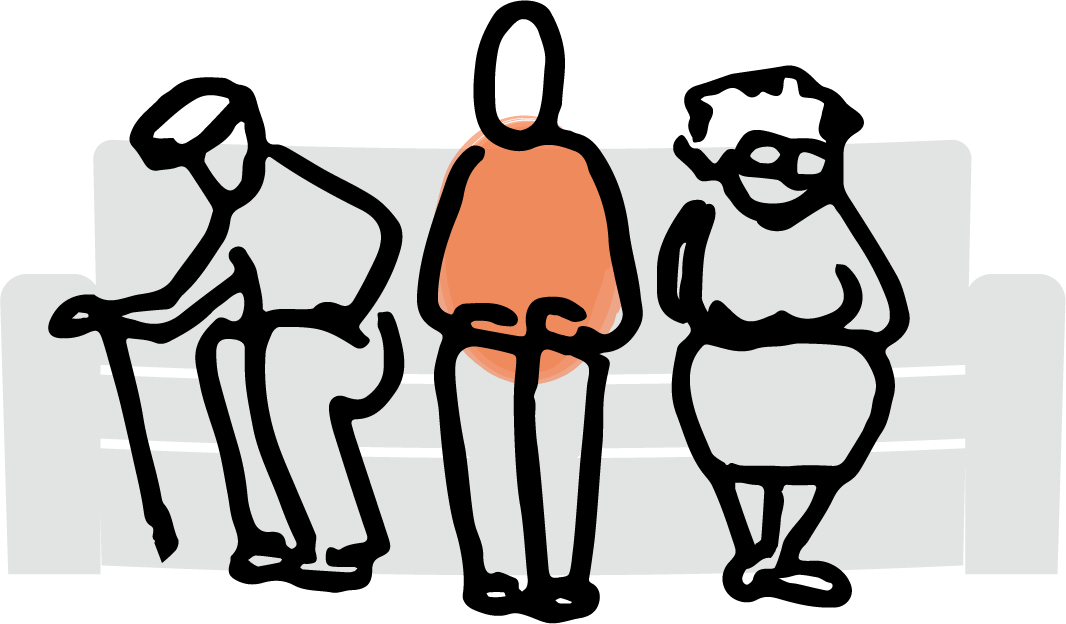Letting Things Go
Why to help your parents clear clutter — and how to get started.
It’s not easy keeping clutter under control.
The older we get and longer we stay in one place, the more stuff we accumulate. And the less energy and desire we have to sort and clear it out.
My office would make Marie Kondo cry.
But for many older adults, living with clutter is a serious safety, health, and quality of life problem.
“Cluttered living spaces pose a risk for falling or injury,” says Dr. Sakina Ouedraogo Tall, a geriatric medicine specialist at NYU Langone Health, “and this risk only increases with further physical deconditioning as we age.”
“Cluttered environments are also more difficult to manage and clean, which can lead to excessive dust and poor air quality, as well as being an invitation to pest infestations,” says Tall. “Additionally, having ‘stuff’ everywhere can be a fire hazard, both in allowing fires to start or spread, as well as being able to escape.”
If your parent has a clutter problem, the sooner you find the strength to help them, the better. Especially if mom or dad has vision, balance, mobility or cognitive issues.
Here are some strategies and tips to get you started:
Talk to Your Mother
Helping your parent declutter isn’t an intervention. It’s a process. So don’t show up at their door with a box of contractor bags and a dumpster. Show up with patience and compassion.
Start the conversation with a non-threatening question that shares your concern and makes it clear your parent is in control. For example:
“Mom, I’m noticing that the mail and the papers on the kitchen table make it hard to sit down and eat. Would you like me to help you find a better place for these things so it’s easier for us to eat together?”
Pro tip: Avoid judgmental language that’s sure to spark confrontation, such as “mess,” “trash,” and “throwing out.”
Mom’s response can tell you a lot. Maybe she’s ready to roll. Or maybe she’s not even aware how clutter chaos is affecting her ability to find things and move around the house safely. Clutter blindness is common.
So is resistance. Dad may not want your help because he doesn’t want to be a burden. Or he’s embarrassed. Or he doesn’t want to let go of sentimental items that evoke emotional memories.
Important: Clutter may be a sign of depression or other mental health conditions that merit a medical assessment. Also: Clutter is not the same as hoarding, a rare psychological disorder that requires treatment.
Start Small and Pace Yourself
Helping your parents declutter feels overwhelming. So make it easier to get started with small wins — a tabletop, a small cabinet, the kitchen “junk” drawer — that allow you to figure out how to work together.
Leave the discussions and decisions about family heirlooms, photos, and other emotional items for later, when you’ve developed more trust.
Be mindful of the urge to keep your parents moving or moving faster. Working through what’s important and letting things go takes time and practice. And it’s emotional.
Sorting through a lifetime of stuff is a marathon, not a sprint. Pace yourself.
Where to Focus First
It’s tempting to start by tackling clutter graveyards like the basement, garage or attic.
Don’t — unless clutter is creating a fire hazard, like rags and flammable cleaning products near a furnace.
Focus instead on spaces where decluttering can move the needle on everyday health and safety:
The kitchen: Look in the fridge. If you can’t see the back wall through all the jars, bags, and take-out containers, or the onions are sprouting green shoots, it’s time for a purge and deep cleaning. Check the pantry for items that are well past their expiration dates. And the drawers: Is it time to pare down the number of paring knives?
The bathroom is already one of the most dangerous rooms in the house for older adults. Clutter underfoot from toiletries, towels, and clothes doesn’t help. Neither does a medicine cabinet filled with outdated prescriptions that makes it hard for dad to find and manage his meds.
Bedrooms are a landing zone for items that find their way from other rooms in the house. Flat surfaces tend to disappear — and so does open floor space. A cluttered bedroom is dangerous, especially at night when clear space is critical for safe trips to the bathroom or an emergency exit.
The stairs: My father was notorious for leaving all sorts of tools and household supplies on the stairs that he intended to grab on his next trip up or down. As a result, the stairs turned into a vertical storage space — and a minefield of trip hazards.
“There’s Absolutely No Upside to Waiting”
Helping your parents is also in your best interest. Because the clutter you don’t help them sort through now is going to find you later.
“Inherited clutter is when you become the recipient of someone else’s belongings for any reason other than by choice,” says clutter coach Amelia Pleasant Kennedy, who is married, a mother of three, and caregiver to a mother living with dementia:
“When [your parents] decide sooner rather than later what to do with their items, they remain completely in charge and have full agency over what happens…
“Start talking with your parents… There’s absolutely no upside to waiting…. It will take time for them to declutter… so a few decisions around items each week will compound and make the process easier for them and you.”
For More:
- How to Help Your Senior Parents Declutter and Organize at Home (Genworth)
- How to Declutter Sentimental Items With Ease (Budget Dumpster)
- The ‘4 Boxes’ Approach to Help Your Parents Reduce Clutter and Inventory Possessions (NextAvenue)
- ‘Depression Rooms’ and ‘Doom Piles’: Why Clearing the Clutter Can Feel Impossible (NYT)
- Does My Loved One Have Hoarding Disorder? (International OCD Foundation)
- The Gentle Art of Swedish Death Cleaning (Amazon)
Thanks for caring,

New to My Aging Parents?
Join us for practical tips and strategies to help you meet the challenges of helping your aging parents. Hand picked and delivered by email biweekly.
No charge. No spam. Unsubscribe anytime.
